GiveWell
Join us in transforming dreams into reality. Your support can make a significant impact on the causes that matter most.
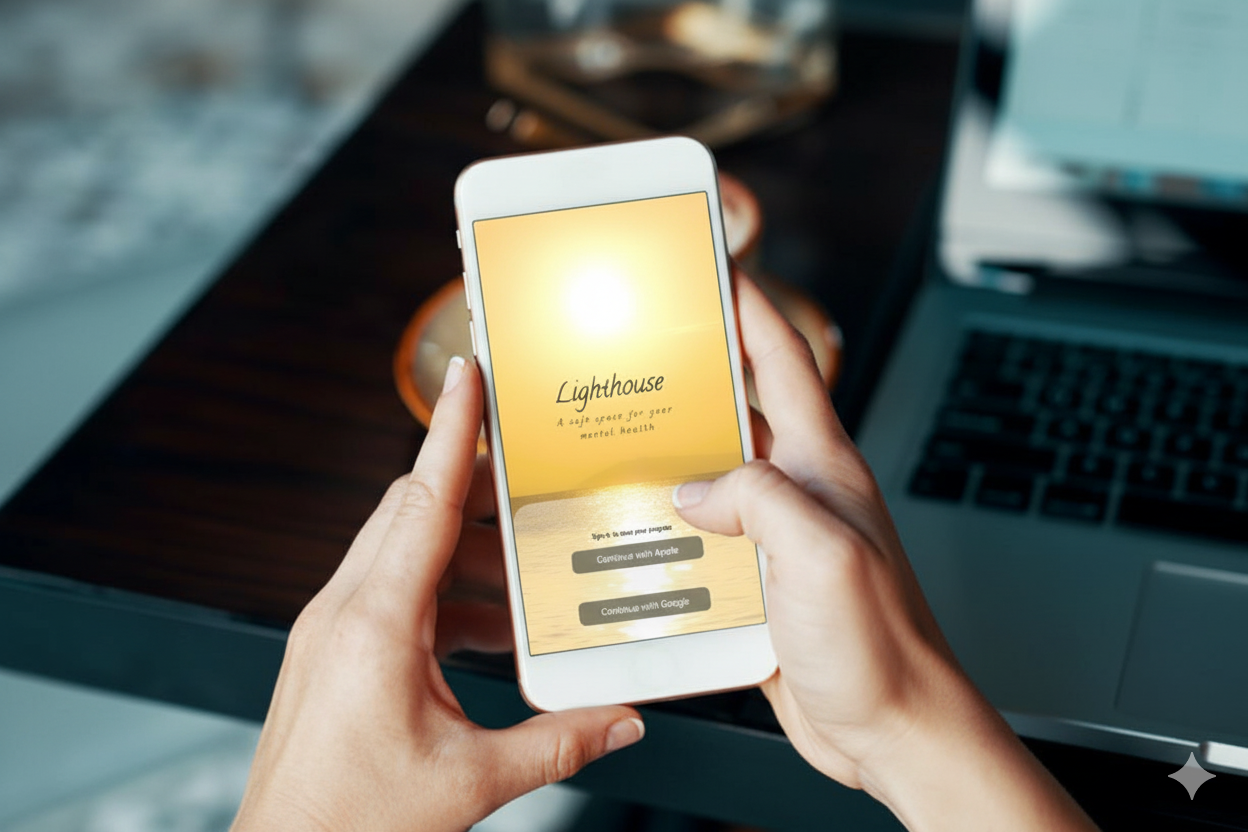
User Research
My initial assumption before user research was that our target users, exemplified by Henry, primarily struggled with a lack of resources due to the societal taboo surrounding mental health. I believed the main pain point was the difficulty in finding help because it's a topic people don't openly discuss. However, in-depth research revealed that while a non-judgmental space is crucial, users' more significant concerns were a need for transparency in the support offered and a desire for help that is personalized to their lifestyle. Additionally, users expressed a strong desire for a support system that felt conversational and interactive, where they are "talked with" rather than "talked at." These insights have shifted my focus from simply providing access to resources to also prioritizing transparency and a feeling of personal connection in my app's design.
The Challenge
Needs & Goals:
Improved Focus & Productivity: He needs practical strategies to concentrate and get his work done effectively.
Stress Management Techniques: He seeks discreet methods to calm his anxiety and cope with daily pressures.
Better Sleep Quality: Finding ways to fall asleep and stay asleep is crucial for his mental and physical well-being.
Confidential & Accessible Support: He requires resources that he can access privately and on his own terms, without drawing attention.
Pain Points:
Crippling Anxiety & Burnout: He experiences constant worry, mental fatigue, and a deep sense of being overwhelmed.
Performance Pressure: The fear of failure and letting his team down adds immense stress.
Insomnia: Chronic sleep deprivation exacerbates his anxiety and impairs his cognitive function.
Reluctance to Seek Help: His pride and desire for privacy prevent him from discussing his struggles at work or openly seeking support.
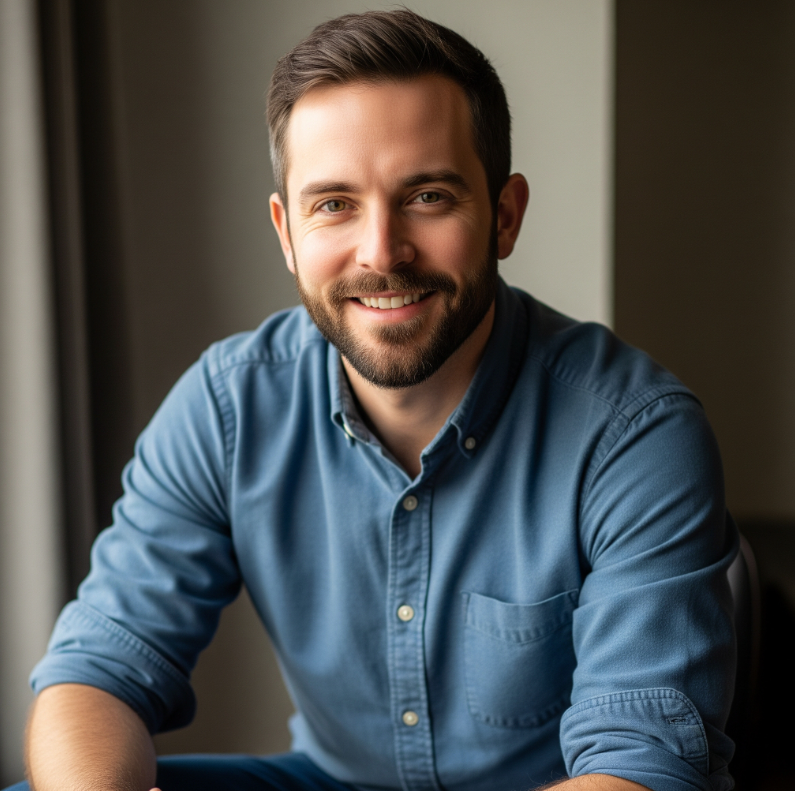
The Problem
Many people face anxiety, stress, and emotional overwhelm, but mental health resources can feel complicated, impersonal, or hard to stick with. Existing apps often overwhelm users with too much information or lack clear, visible progress. For people who need simplicity, encouragement, and a steady way to track their emotional well-being, there’s a gap in the market.
The Solution
The Lighthouse is a calming, easy-to-use mental health support app designed to help users build daily emotional resilience
Empathy Map
Says
"I just need something quick that I can do at my desk"
Thinks
"Will this makes a difference? I don't want another app I foret about".
Does
Reaches for phone during breaks,tries breathing videos,sometimes shuts off notifications to avoid triggers.
Feels
Cautious about clinical labels, hopeful about small wins , guilty about not prioritixing mental health.
Users have trouble finding mental health support that's affordable, available when they need it , and accessible from their unique location.
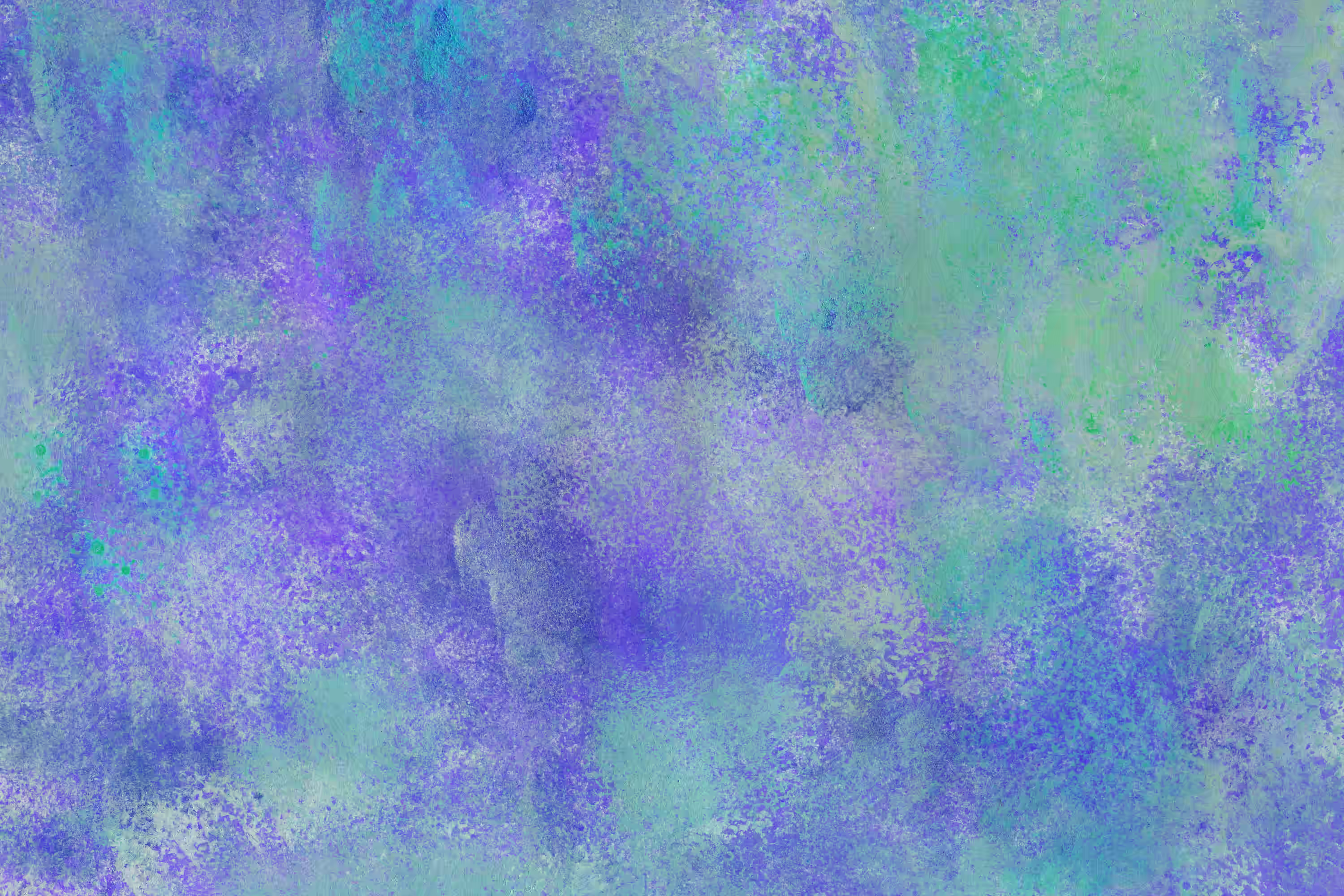
Users are afraid of being judged, having their privacy violated, or facing professional consequences.
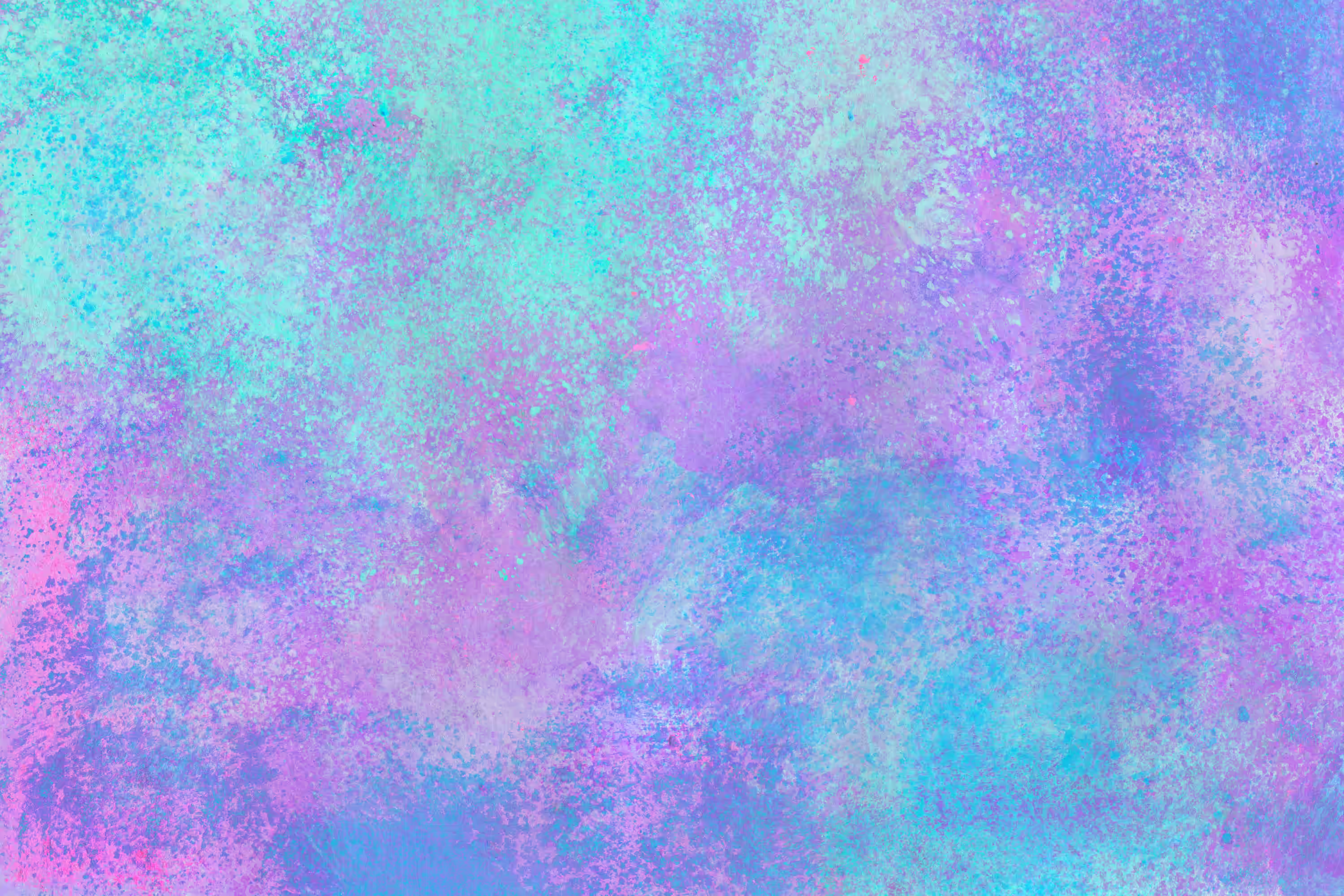
Users feel their unique life circumstances like their demanding job , lifestyle , or specific stressors are ignored by generic tools. Users crave a sense of connection and gentle reassurance. They often feel completely alone in their struggle and need a quiet, supportive space that offers simple, actionable steps to feel grounded without pressure.
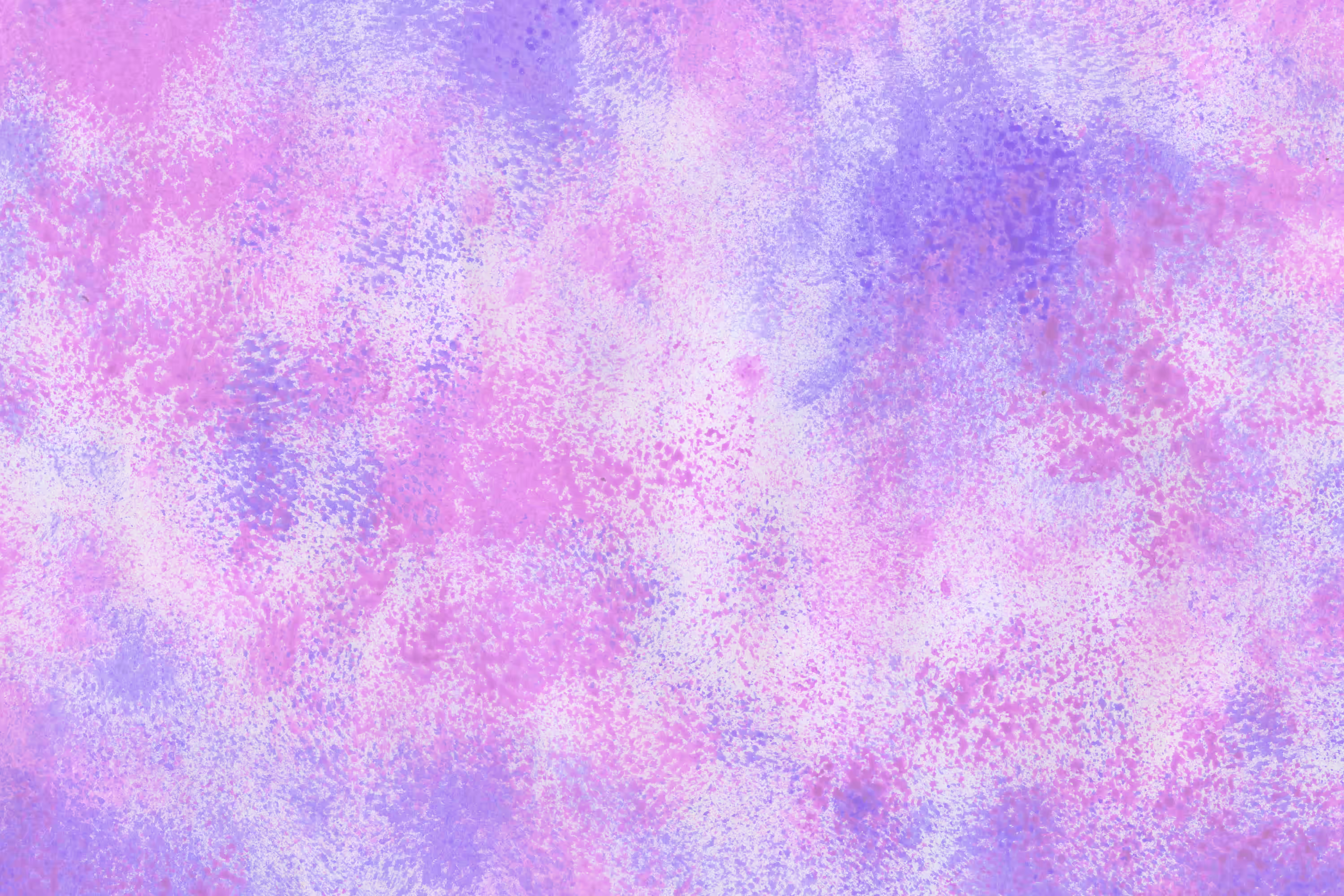
When already feeling anxious, users are easily frustrated by confusing apps, too many choices, and any process that requires effort. Complexity is a major barrier that causes users to abandon the tool rather than engage with it.
Arrow- In Direct
Key Highlight: Excellent for relaxation and sleep, very high production quality with celebrity narrators.
Key Highlight: Great for beginners with structured, educational courses and engaging animations
Key Highlight: Provides accessible professional therapy through flexible communication (text, call, video).
Key Highlight: Free and readily available for quick information or basic guided exercises.
Key Highlight: Makes self-care engaging and fun, particularly for younger users or those who struggle with traditional apps.
(In Person)
Key Highlight: The gold standard for many, offering deep, personalized, human connection.
The Challenge
Needs & Goals:
Overwhelming Grief & Numbness: Struggling with profound, sudden loss and emotional paralysis.
Social Isolation: Feels misunderstood by friends; avoids social situations.
Lack of Tailored Support: Traditional help doesn't fit the unique shock of younger widowhood.
Practical Paralysis: Daily tasks feel impossible without his wife.
Fear of Judgment/Forgetting: Worries about how others perceive his grief and about losing connection to his wife's memory.
Pain Points:
Process Grief: Find a safe space to understand and express complex emotions.
Connect with Peers: Seek out others who truly understand sudden widowhood.
Simple Coping: Discover easy, actionable strategies for daily emotional management.
Regain Purpose: Slowly find direction in his drastically changed life.
Manage Logistics: Get practical support for everyday tasks that now feel overwhelming.
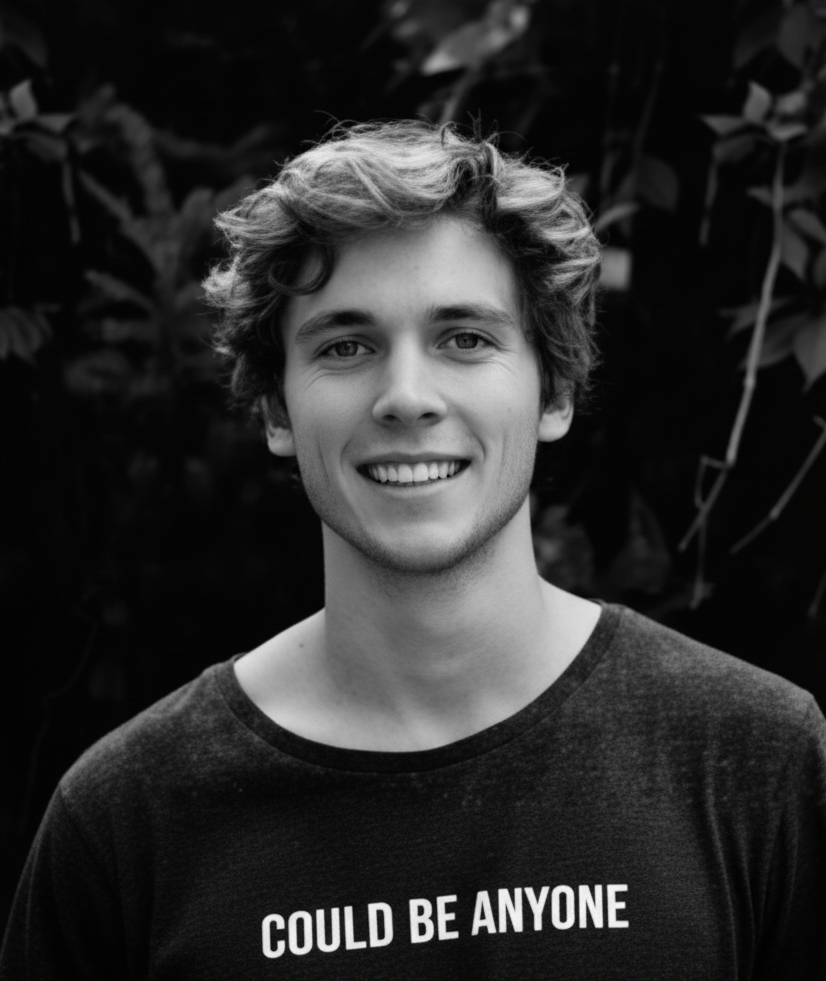
Storyboard
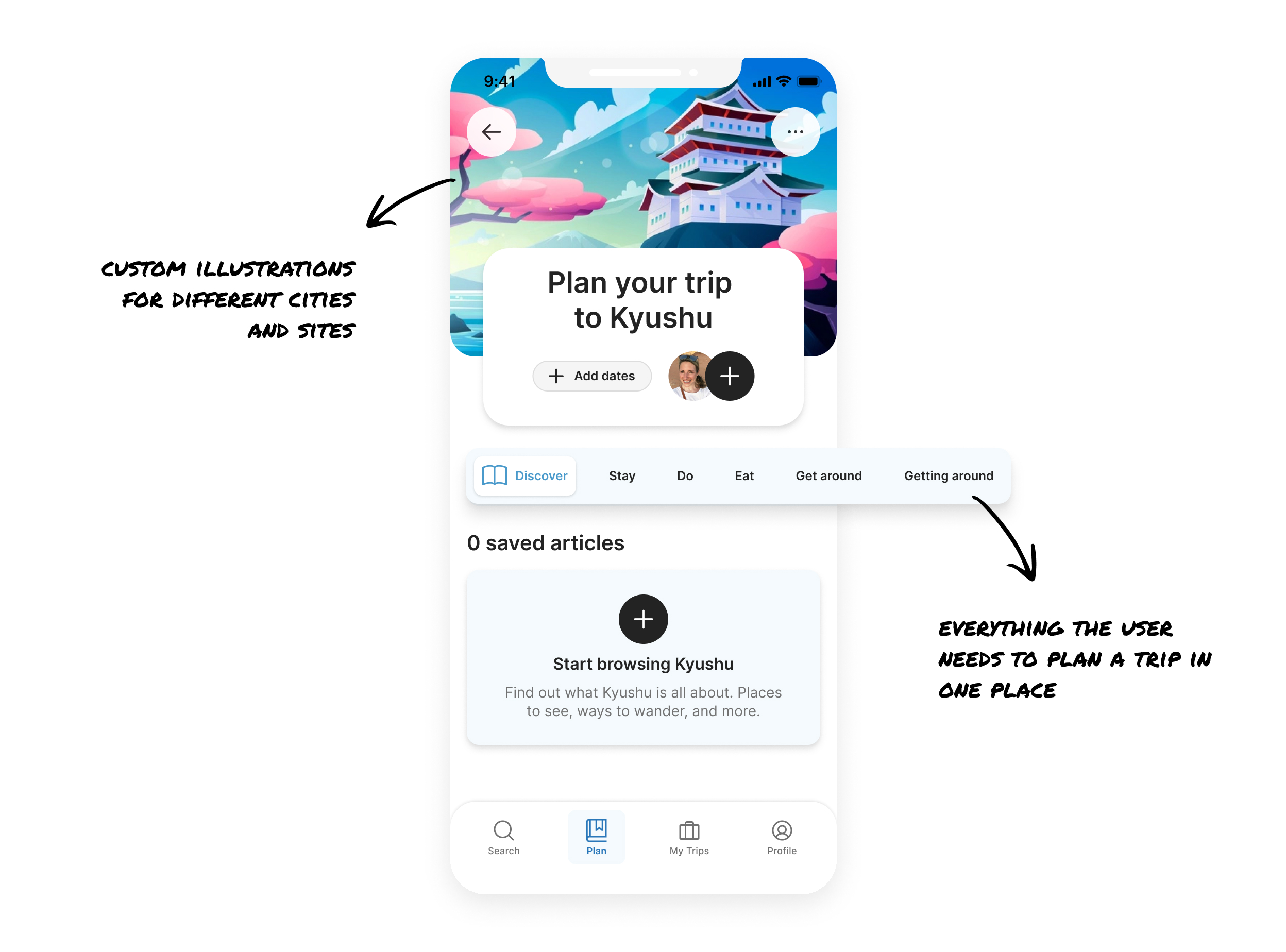
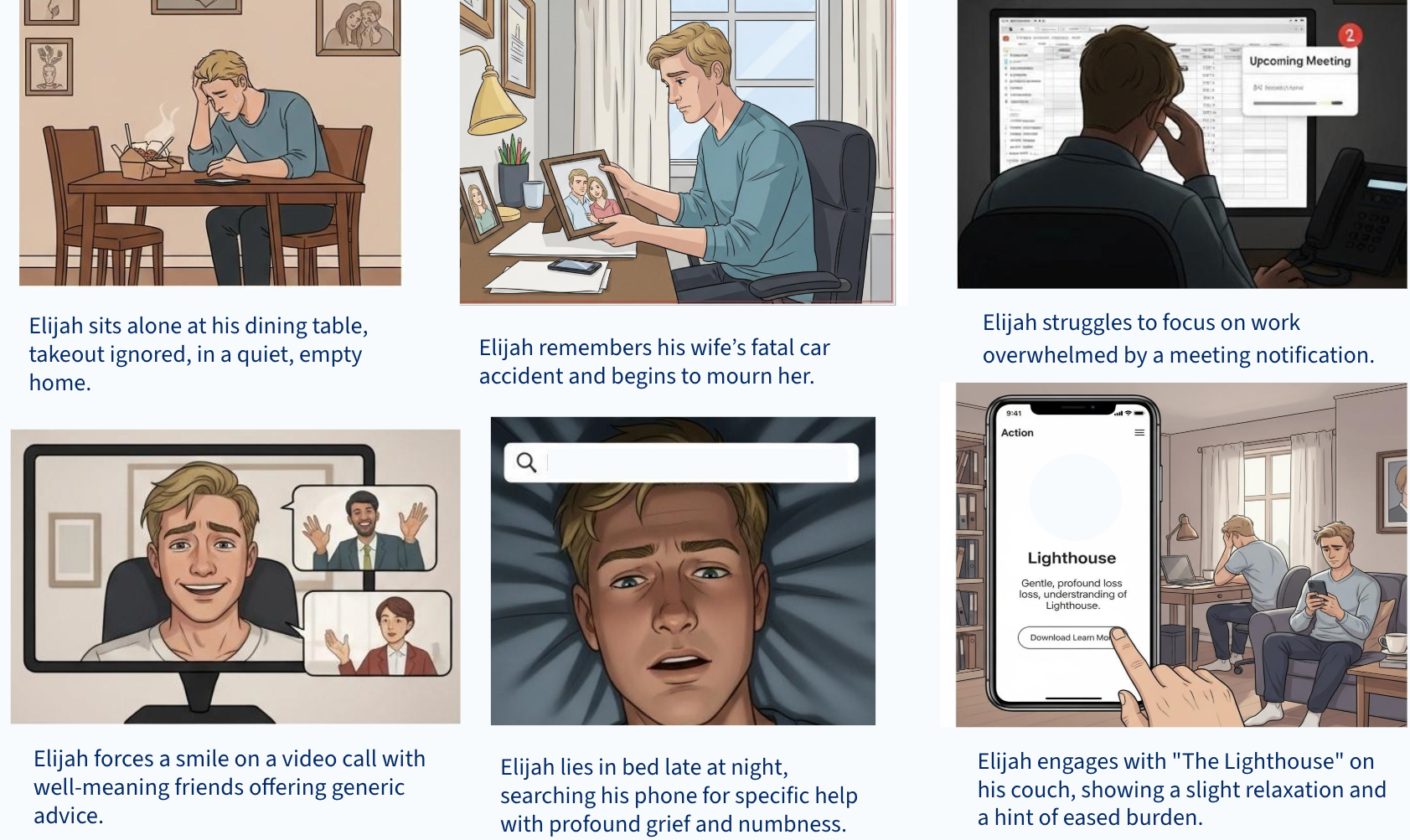
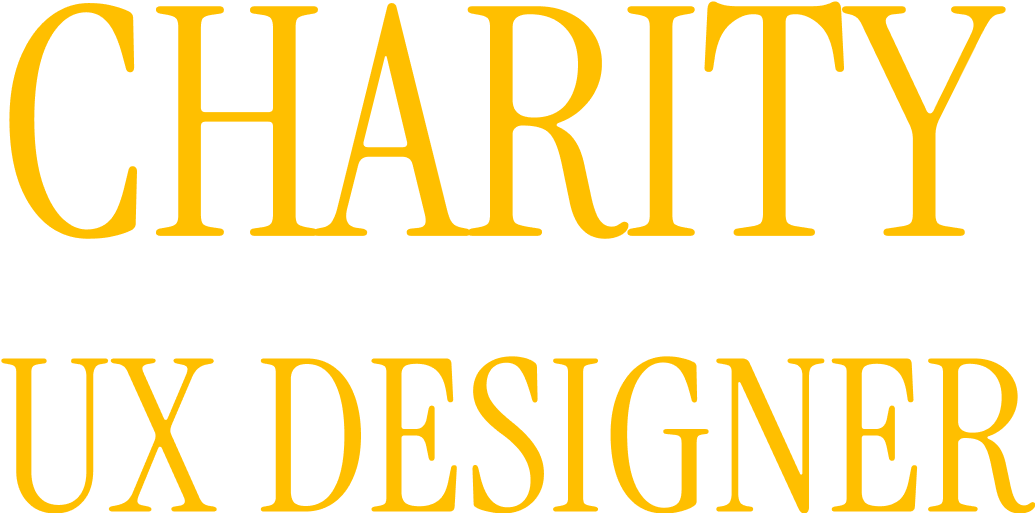
.png)
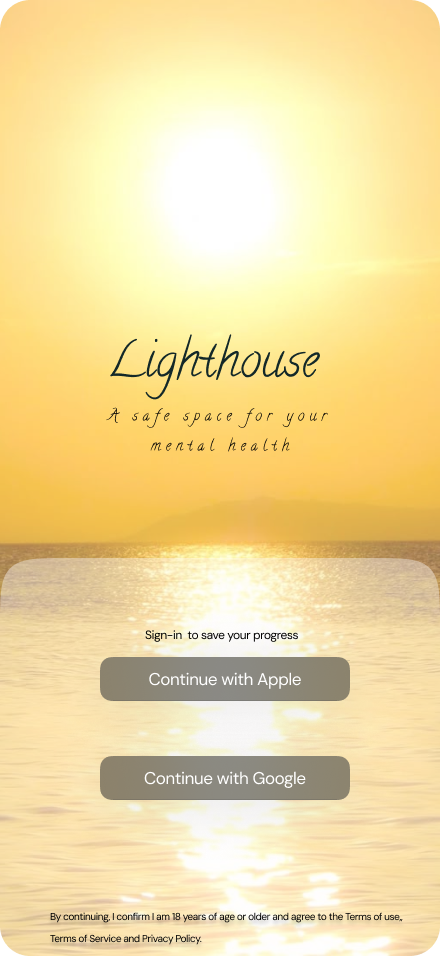
.png)
.png)
.png)
.png)
.png)
.png)